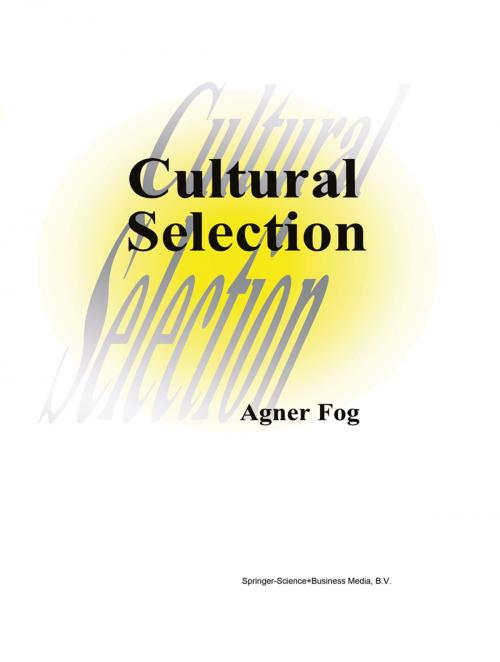Cultural Selection
Nonfiction, Religion & Spirituality, Philosophy, History, Criticism, & Surveys, Science & Nature, Science, Biological Sciences, Evolution| Author: | A. Fog | ISBN: | 9789401592512 |
| Publisher: | Springer Netherlands | Publication: | March 9, 2013 |
| Imprint: | Springer | Language: | English |
| Author: | A. Fog |
| ISBN: | 9789401592512 |
| Publisher: | Springer Netherlands |
| Publication: | March 9, 2013 |
| Imprint: | Springer |
| Language: | English |
- INTRODUCTION This book describes a new interdisciplinary theory for explaining cultural change. In contrast to traditional evolutionist theories, the present theory stresses the fact that a culture can evolve in different directions depending on its life conditions. Cultural selection theory explains why certain cultures or cultural ele ments spread, possibly at the expense of other cultures or cultural elements which then disappear. Cultural elements include social structure, traditions, religion, rituals, art, norms, morals, ideologies, ideas, inventions, knowledge, technology, etc. This theory is inspired by Charles Darwin's idea of natural selection, because cultural elements are seen as analogous to genes in the sense that they may be reproduced from generation to generation and they may undergo change. A culture may evolve because certain cultural elements are more likely to spread and be reproduced than others, analogously to a species evolving because individuals possessing certain traits are more fit than others to reproduce and transmit these traits to their offspring.
- INTRODUCTION This book describes a new interdisciplinary theory for explaining cultural change. In contrast to traditional evolutionist theories, the present theory stresses the fact that a culture can evolve in different directions depending on its life conditions. Cultural selection theory explains why certain cultures or cultural ele ments spread, possibly at the expense of other cultures or cultural elements which then disappear. Cultural elements include social structure, traditions, religion, rituals, art, norms, morals, ideologies, ideas, inventions, knowledge, technology, etc. This theory is inspired by Charles Darwin's idea of natural selection, because cultural elements are seen as analogous to genes in the sense that they may be reproduced from generation to generation and they may undergo change. A culture may evolve because certain cultural elements are more likely to spread and be reproduced than others, analogously to a species evolving because individuals possessing certain traits are more fit than others to reproduce and transmit these traits to their offspring.















